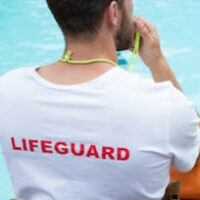Lifeguard Duties and Responsibility

News 4 Jax recently reported that Fernandina Beach Ocean Rescue is still searching for lifeguards after less than half of applicants reportedly failed its swim test. The Ocean Rescue Supervisor for the City of Fernandina Beach has attested that many applicants have difficulty completing the mandatory pre-employment test which requires the applicant to complete a 500 meter swim in under 10 minutes. Even for those who manage to complete the swim, requirements are far from over. Those applicants are required to take an additional 58 hours of training before they can sit atop the lifeguard tower. However, these stringent requirements are reportedly worth it. The Ocean Rescue Supervisor also told reporters that these methods prevent a whopping 99.9 percent of all drownings.
Lifeguards clearly play an important role as they can literally be the intervening factor that prevents a drowning. However, tragic consequences can result when lifeguards are negligent and they and/or their employers may be held legally responsible when a lifeguard fails to perform expected lifeguard duties.
What Does the Lifeguard Duty of Care Entail?
Because lifeguards are required to be certified under Florida law, they owe a heightened duty of care to the people they supervise. Generally speaking, a lifeguard is expected to take steps that a reasonable lifeguard would take under the circumstances to protect the safety of other swimmers. On-duty lifeguards or their employers may be held legally liable when this duty of care is breached and an injury or death results.
What Are Examples of How Liability May Be Triggered?
Lifeguards should obviously remain alert throughout a shift at all times and should be appropriately trained to recognize signs of distress and drowning. Importantly, liability is typically triggered when basic lifeguard duties were disregarded or performed negligently.
This liability may be triggered for a variety of scenarios including circumstances such as:
- The lifeguard was unqualified
- The lifeguard was distracted and did not respond in a timely way to an emergency
- The lifeguard failed to act appropriately in a given situation
What Should You Do if You or a Loved One is Injured Because of a Lifeguard’s Negligence?
While everyone can make mistakes, some mistakes have more serious implications than others. Fortunately, taking certain actions at the scene of the incident can help you later substantiate your claims and hold the accountable party responsible for your injuries. At the scene of a near-drowning incident, ensure that you:
- Do not admit fault
- Call authorities and obtain medical help as quickly as possible
- Take the names and contact information of any eyewitnesses
- Photograph the scene of the accident and the surrounding area
Have You Suffered an Injury as the Result of Someone Else’s Negligence?
If you have been injured because a lifeguard was negligent, we can help – even if there was no other driver involved in your accident. The Jacksonville personal injury attorneys at The Pendas Law Firm are experienced in helping people like you recover the compensation that you deserve. Contact us today to schedule a free consultation.
The Pendas Law Firm also represents clients in the Orlando, Fort Lauderdale, Miami, Fort Myers, Tampa, Daytona and Bradenton areas.
Resource:
news4jax.com/news/florida/nassau-county/fernandina-beach-ocean-rescue-still-searching-for-summer-lifeguards
https://www.pendaslaw.com/why-is-south-florida-so-dangerous-for-pedestrians/






